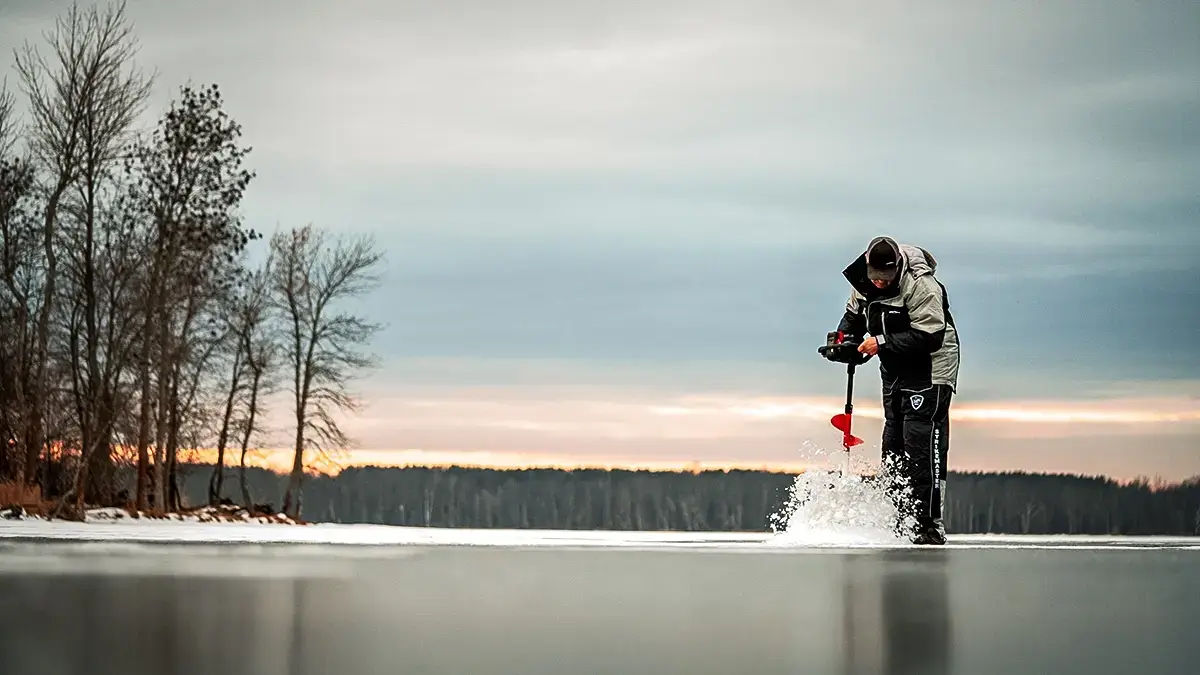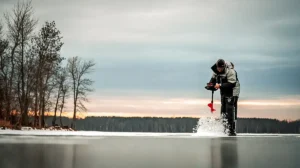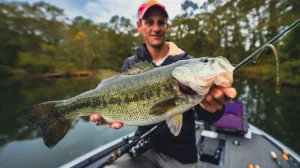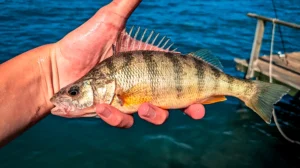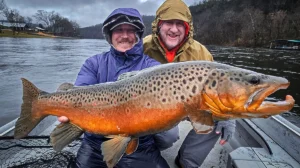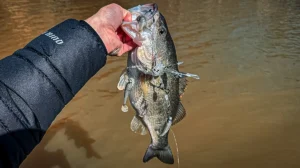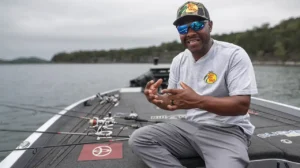Tim Moore had one wish as he entered the new year. He wanted a good, old-fashioned winter in New Hampshire.
For years, that was a given on Lake Winnipesaukee, where Moore guides. Ice, snow and cold weather were guaranteed once the Jan. 1 ice-fishing opener rolled around.
Moore filled his books with guide trips, he became a celebrity in the hard-water fishing world, and he led his customers to multiple trophy catches.
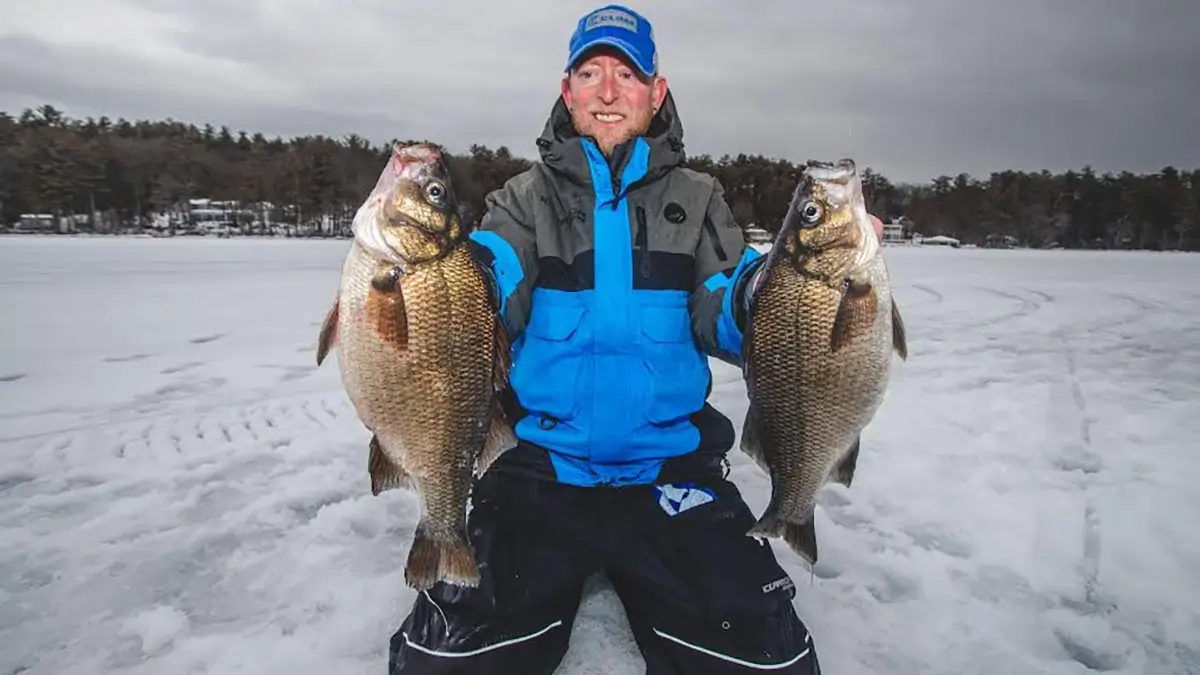
Then things changed. The winter of 2023-2024 was the mildest on record in New Hampshire. The average temperature from December through February was 28 degrees, downright balmy by New England standards.
That melted away tradition in New Hampshire and many other states where ice fishing is king. So you can’t blame Moore for celebrating winter’s frigid return.
“It’s refreshing to know that we have good, clear ice right now, and the type of weather where we should build more,” said Moore, 52, who runs the Tim Moore Outdoors guide service guide service and is a member of the Clam Outdoors pro staff.
“We’re just getting started on our season, and we’ve had a lot of wind, which has delayed things. But once things calm down, I think we’re in for a good season.”
In other words, a return to normal.
Last year was anything but normal. There were long stretches of 50-degree temperatures and rain, which resulted in mushy, unsafe ice..
“We normally have at least 24 to 36 inches of ice in the bay we fish,” Moore said. ”But last year, we had a max of 10 inches.
“It was the worst year of ice fishing we’ve had since I started guiding [in 2006].”
But it wasn’t necessarily an anomaly. The top five warmest winters on record in the state have all occurred since 1998, according to weather agencies. The result? There were a lot of days when fishermen were kept off the ice.
“I hope we don’t ever see another winter like we had last year,” Moore said
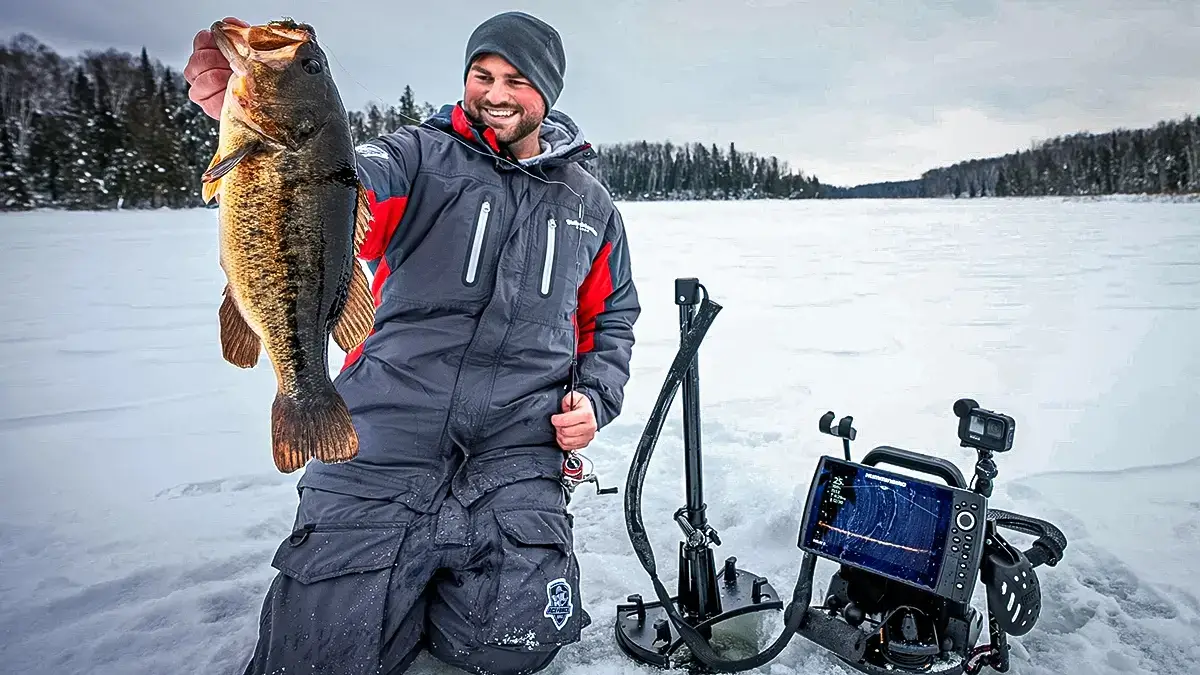
A Widespread Problem
It’s not just New Hampshire. Seven other states—Iowa, Michigan, Minnesota, New York, North Dakota, Vermont and Wisconsin–experienced their warmest winter on record in 2023-2024.
Some anglers blame climate change. Others argue that winters in the Midwest have always been variable—bitter cold one year, mild the next.
Winter has made a comeback this year.
Cold temperatures in the upper Midwest have allowed fishermen to get on the ice at famous fisheries such as Mille Lacs, Red, Leech and. Winnibigoshish in Minnesota, Devil’s Lake in North Dakota, the glacial lakes of South Dakota, and small lakes in western Wisconsin.
Walleyes, jumbo yellow perch and panfish are being caught, and Facebook pages are full of photos of hardy fishermen who have found success.
Still, there are concerns about how warm spells in December and high wind in many places have affected safe ice. Conditions can vary greatly even on the same body of water. Patches of open water exist on some northern lakes, even where safe ice is being reported in bays and more sheltered areas.
And in states that are on the fringe of the ice belt—states such as Kansas and Missouri—there hasn’t been enough cold weather to build safe ice.
Even in Wisconsin, a traditional ice-fishing state, fishermen who tried to push the safety limits paid the price.
Two fishermen died when they fell through thin ice — one in Green Bay and another on the Kewaunee River. And several others had close calls when their ATVs went through the ice.
A video that was shared on social media displayed the dangers of venturing on newly formed ice. A fisherman drove his Jeep onto the ice on Puckaway Lake near Madison, Wisconsin, on a 50-degree day in early December. As he was heading to shore, his vehicle broke through the ice and sank.
The angler managed to get out and survive, and he presumably learned a lesson.
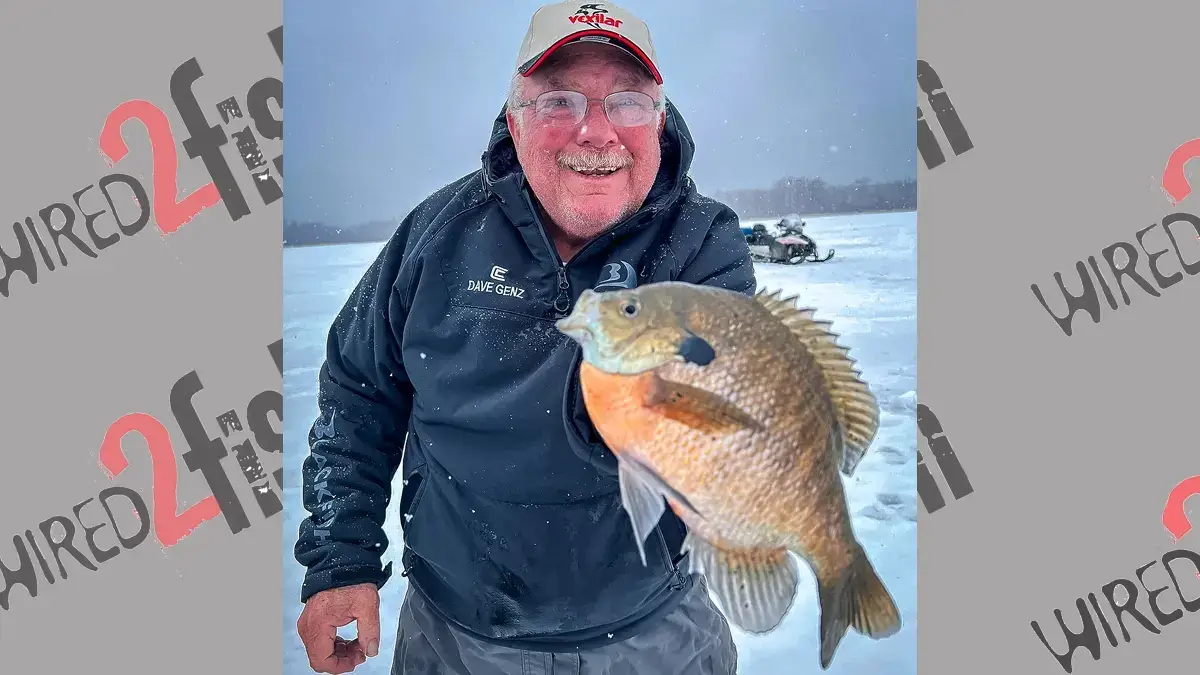
Proceed… with Caution
That prompted the Wisconsin Department of Natural Resources to issue ice safety warnings.
Dave Genz, a pioneer in ice fishing who lives in St. Cloud, Minnesota, agrees that some fishermen overlook the safety aspects.
“You can’t drive onto the ice and then find out how thick it is,” Ganz said. “By that time, it’s too late. You have to test drill on your way out and make sure it’s good, solid ice.”
DNR officials recommend at least 4 inches of clear ice to set out on foot, 5 to 7 inches to travel by snowmobile, 7 to 8 inches for ATVs, 9 to 12 inches for cars and 12 to 17 inches for trucks.
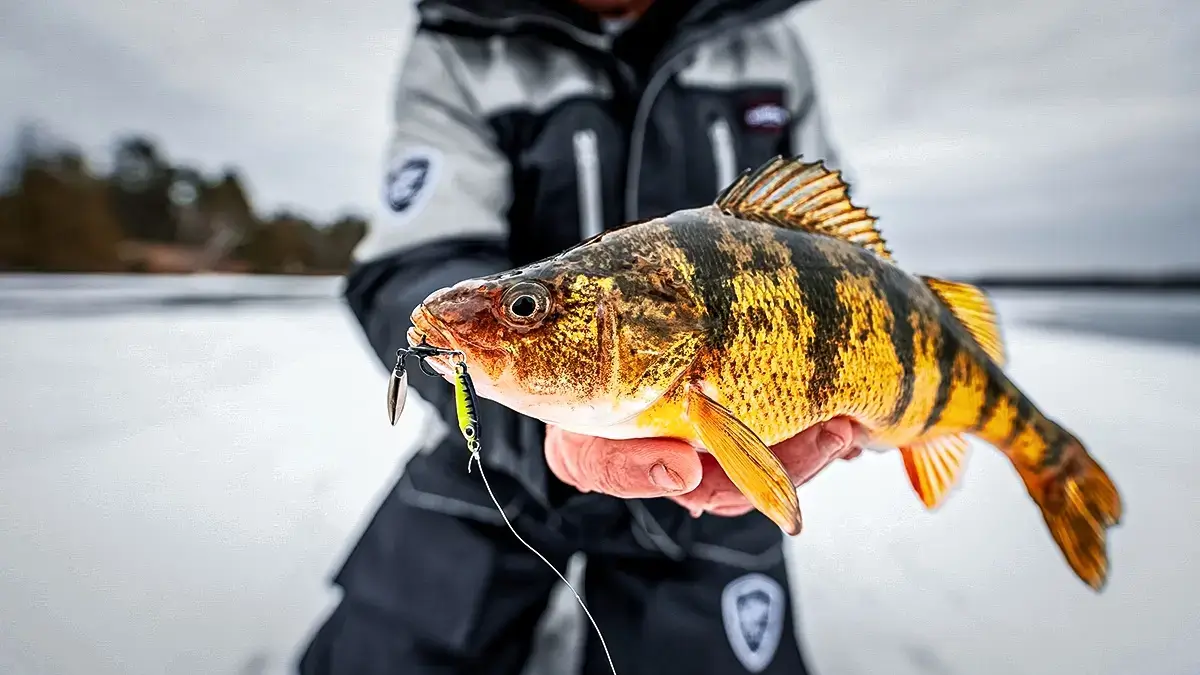
Proceed… with Caution
Conditions can vary greatly from spot to spot. Just because you see a video online of someone going through the ice on one lake, don’t assume there is unsafe ice everywhere, Genz said.
“I’ll tell you in two words what hurt ice fishing more than anything last year — social media,” he said. “There was lots of good ice fishing in northern Minnesota last year, but a lot of people were afraid to go out.”
Genz, who developed many ice fishing products for Clam Outdoors, has already experienced good ice fishing this winter, landing walleyes on Red Lake, and everything from jumbo yellow perch to bluegills elsewhere.
A New Hampshire Winter
In states such as New Hampshire, winter is celebrated. There are ice festivals, ice-fishing derbies, ice skating, ice hockey and just about anything else associated with the cold.
New Hampshire has a set ice-fishing season that runs from Jan. 1 to March 31. At Lake Winnipesaukee, a 44,500-acre lake nestled in the foothills of the White Mountains, ice fishermen target trophy white perch and lake trout.
Moore usually starts by drilling test holes in the ice to ensure that it is safe for his guide parties.
Once he starts fishing, he likes to stay mobile, using Clam portable ice shelters to move from spot to spot. He uses both tip-ups and jigging rods. How big do the white perch get? In 2017, he caught a 2-pound, 12-ounce fish that was later verified as a world record for tip-up fishing by the National Fresh Water Fishing Hall of Fame.
Now, if just the weather cooperates…
“We’re ready for a cold winter here,” Moore said.


